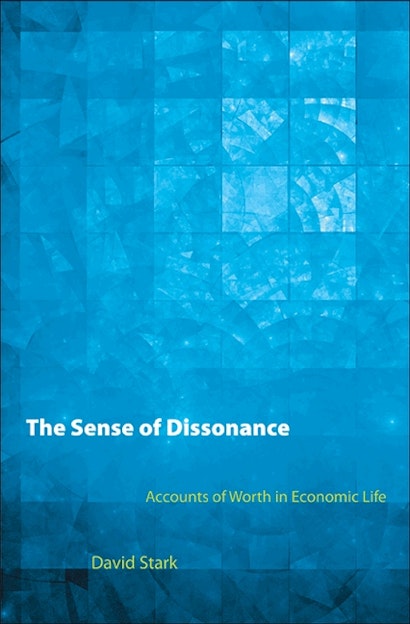What counts? In work, as in other areas of life, it is not always clear what standards we are being judged by or how our worth is being determined. This can be disorienting and disconcerting. Because of this, many organizations devote considerable resources to limiting and clarifying the logics used for evaluating worth. But as David Stark argues, firms would often be better off, especially in managing change, if they allowed multiple logics of worth and did not necessarily discourage uncertainty. In fact, in many cases multiple orders of worth are unavoidable, so organizations and firms should learn to harness the benefits of such “heterarchy” rather than seeking to purge it. Stark makes this argument with ethnographic case studies of three companies attempting to cope with rapid change: a machine-tool company in late and postcommunist Hungary, a new-media startup in New York during and after the collapse of the Internet bubble, and a Wall Street investment bank whose trading room was destroyed on 9/11. In each case, the friction of competing criteria of worth promoted an organizational reflexivity that made it easier for the company to change and deal with market uncertainty. Drawing on John Dewey’s notion that “perplexing situations” provide opportunities for innovative inquiry, Stark argues that the dissonance of diverse principles can lead to discovery.
"The Sense of Dissonance is an important and refreshing contribution to both economic sociology and organizational sociology, introducing a wealth of new concepts, ideas, and lines of thinking."—Olav Velthuis, American Journal of Sociology
"Stark's ideas about the value of play, ambiguity, and uncertainty are particularly provocative and far-reaching."—Brooke Harrington, Contexts
"[S]mart and ambitious. . . . [This book] constitutes an important contribution to the most cutting-edge debates of contemporary economic sociology and organization theory."—Pierre François, European Economic Sociology Newsletter
"Stark gave us a book both theoretically very deep, pleasant to read, and rich in empirical details."—Filippo Barbera, Sociologica
"The Sense of Dissonance is a great book, and I recommend it warmly. . . . Like most great achievements, Stark's book opens up more questions than it answers and leaves its readers with important puzzles."—Petter Holm, Administrative Science Quarterly
"In this book, Stark takes the reader on a fascinating journey of discovery, from the socialist factories of Eastern Europe to the new media companies and financial trading floors of Manhattan. The Sense of Dissonance is equally a book about how organizations really work and how we should think about the problem of organization—a great accomplishment."—Duncan Watts, author of Six Degrees: The Science of a Connected Age
"For many readers, the most powerful demonstration of the ever-present duality of value and values will be Stark's field research on the impact of the 9/11 tragedy on one financial firm that lost hundreds of employees that day. Stark recounts the process by which the firm rebuilt its business through the painful and cathartic narratives of those lost and of those who survived. A moving analysis that redresses Dewey's paradox of the emotive and evaluative."—Bruce Kogut, Columbia Business School
"At a time when global crises have shattered standard accounts of economic life, David Stark's The Sense of Dissonance offers powerful alternative explanations of economic activity along with specific prescriptions for twenty-first-century economic survival. Taking us into the varied worlds of Hungarian toolmakers, Manhattan Silicon Alley new media workers, and Wall Street arbitrage traders, Stark deftly grounds theoretical insights with marvelous ethnographic accounts. This book instructs and inspires."—Viviana A. Zelizer, author of The Purchase of Intimacy
"This wonderful, lively, and personal book is packed with insights for economic sociology and general sociological theory. A mature statement by a leading sociologist, it is also a delight to read."—Walter W. Powell, Stanford University
"This is an important book about an important topic—and it has a strong narrative and impressive, engaging ethnography."—Michèle Lamont, Harvard University


